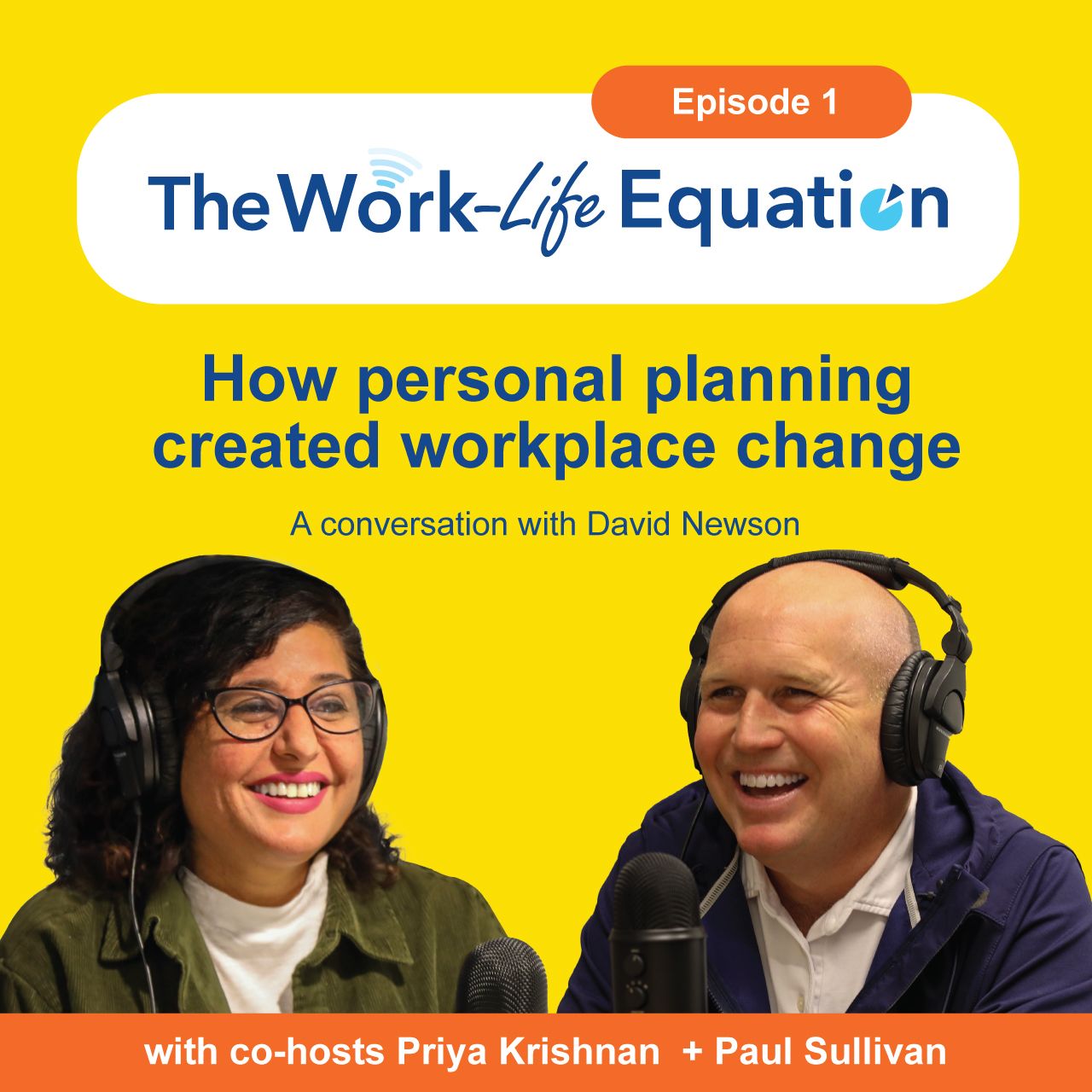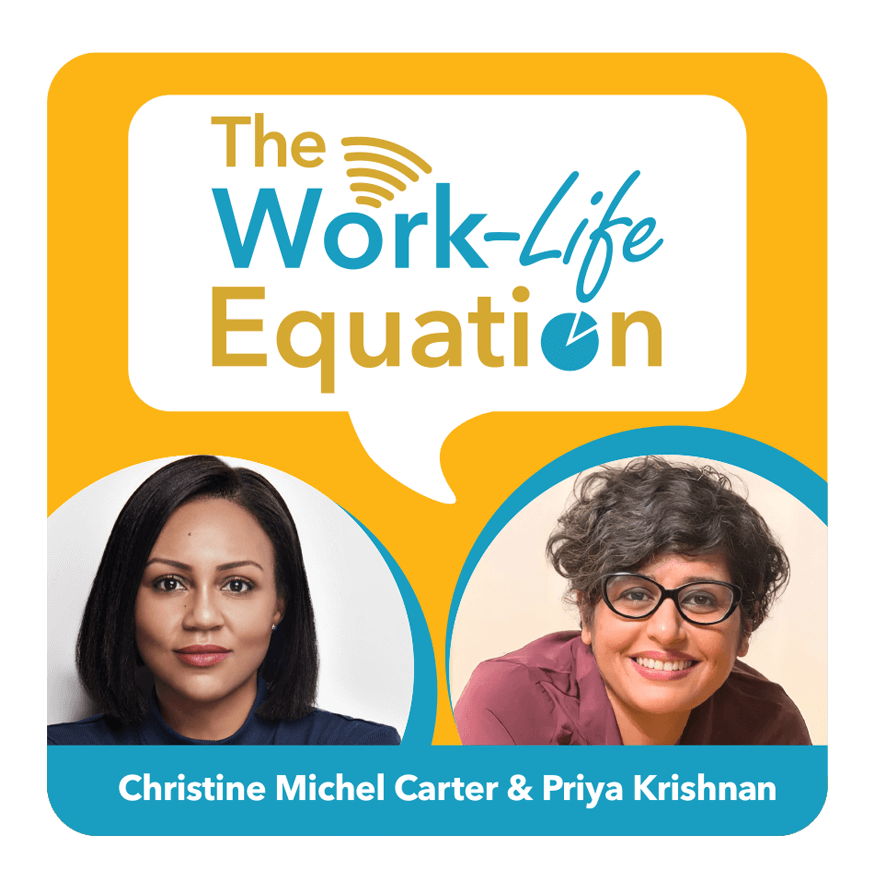Today, David Smith is an associate professor at John Hopkins Carey Business School, but he used to be a Navy pilot.
In the Navy, David’s career progressed seamlessly, as he easily found ways to climb the organizational ladder.
His wife, on the other hand, whom who he met at the naval academy, had a different experience altogether.
Things that flowed freely to him – access to information, opportunities, and the next great set of orders – were much always slightly out of reach for his wife.
The disparity sparked David’s curiosity, ultimately leading to the focus of his academic career.
David recently joined Priya and Paul on The Work-Life Equation podcast, where he shared actionable strategies to create more gender equity – both at home and in the workplace.
Breaking down traditional ideologies
While it may seem that women are gaining momentum in the executive leadership track, Lean In’s Women in the Workplace 2023 report states that these “hard earned gains are encouraging but fragile.”
David says that this issue is deeply rooted in our traditional ideologies, and we need to begin breaking those down if we ever want to close the gender gap.
To start, we need to change the way we look at gender roles and patriarchal views about how we divide responsibilities.
Dismantling domestic gender roles to create equity at home
David says, “The default parent is [usually] the mom…we have to begin to shift and change some of that.”
Referencing Eve Rodsky’s Fair Play model, David suggests creating a plan to divide domestic responsibilities – and to have those conversations regularly because situations change over time.
David explains, “We have to adjust to continue to make things equitable in the same way we ought to be adjusting in the workplace to keep them equitable.”
Creating career equity for women in the workplace
David says that research indicates the best leaders possess humility, vulnerability, authenticity, empathy, and great emotional intelligence skills – all attributes that are commonly associated with women.
Nonetheless, Lean In’s report says that women have a more difficult time rising beyond mid-level management, and they often end up leaving organizations out of frustration.
“Progress is slower for women at the manager and director levels, creating a weak middle in the pipeline and impacting the majority of women in corporate America.”
How do we break this cycle to ensure that more women are moving up in their careers?
David suggests creating a transparent understanding about what it takes to get a promotion.
He says, “It always shocks me and surprises me when I walk into an organization, and women will tell me, ‘I have no idea what it takes to get to the next level.’”
Companies need to be clear about opportunities and steps that women can take to grow their careers.
Leaders should also share this information openly and intentionally advocate for women when growth opportunities arise.
Divide “office housework” equally between men and women
In addition to transparency, leaders must be cautious when it comes to assigning “office housework.”
David defines office housework as “non-promotable tasks that we know have to be accomplished but are more often done by women in the organization.”
This can include committee participation, ERGs, or even note taking.
“It's important work, but it doesn't also lead to opportunity,” David says. “It doesn't always lead to promotion, and it's not something you're going to read about in your next performance review.”
He advises leaders to create awareness around this issue and to find ways to integrate more male participation in these initiatives and tasks.
To hear more about David’s research, personal career journey, and additional insights on gender inclusivity, listen to his full conversation with Priya and Paul on The Work-Life Equation podcast.





